What Does Organic Mean?
- By The FruitGuys
- Last Updated On
- Reading Time: 9 mins.
Every year, Americans buy about 8% more organic products than they did the year before. That’s a remarkable rate of industry growth. You’ve probably put a crisp organic apple or head of lettuce into your own shopping cart at some point with your eye on the USDA Organic seal. But what does the word “organic” on that sticker actually mean?
There are dozens of food labels and buzzwords out there, from “organic” and “non-GMO” to “sustainably farmed” and “regenerative.” With all of that verbiage floating around, it can be tricky to know what you’re buying when you pick something organic off the shelf.
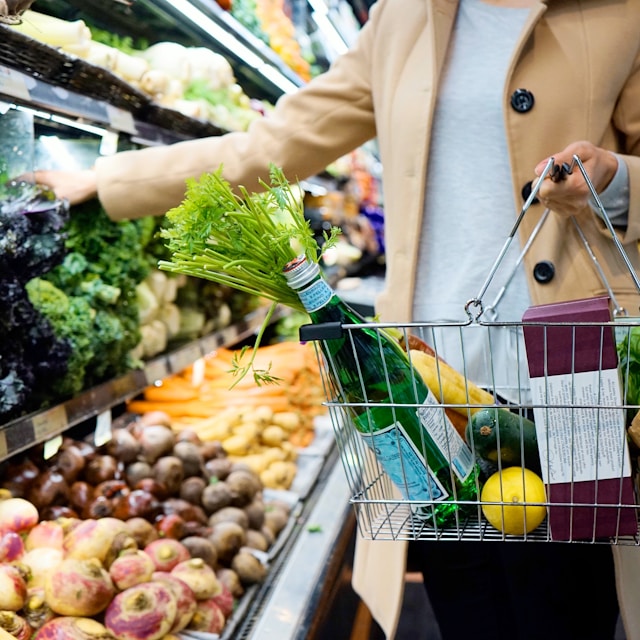
The good news is that the USDA Organic seal is more than a buzzword. It has a concrete definition, but it also has limitations.
In this blog, we’ll go over what “organic” means, what it doesn’t mean, and why some farmers go through the process of organic certification while others don’t. To get the real and nuanced story, we spoke directly to our FruitGuys farm partners—folks with their boots on the ground and their hands in the dirt growing our food.
What Does ‘Organic’ Mean?
The most important thing to know about the organic label is that it’s not about the food a farmer produces—it’s about the way they grow it. Certified organic farmers can’t use genetically modified organisms (GMOs). They also can’t use certain prohibited methods and substances, including most synthetic pesticides, herbicides, and fertilizers; arsenic; lead salts; ash from manure burning; and more.
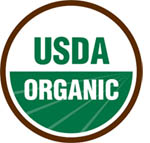
According to the National Organic Program (NOP), “Organic products must be produced using agricultural production practices that foster resource cycling, promote ecological balance, maintain and improve soil and water quality, minimize the use of synthetic materials, and conserve biodiversity.”
Organic certification does leave some wiggle room for farmers if pollen from GMO crops or conventional pesticides drift in on the breeze from nearby fields. They can call their produce organic as long as they’re taking steps to protect their crops, even if they aren’t 100% successful.
At JSM Organics in Royal Oaks, California, farmer Javier Zamora grows organic berries, vegetables, and flowers on a 200-acre, certified organic farm. He weeds his fields by hand and plants fava beans and other cover crops to prevent erosion, feed the soil through nitrogen fixation, and increase biodiversity.
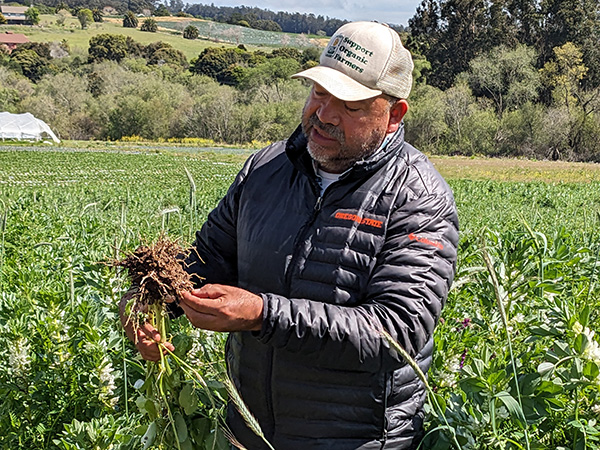
“There are lots of opportunities for us to do really good things with Mother Nature,” Javier told The FruitGuys during a farm visit where he shared his organic practices. “… I want to keep [the land] in really good shape and make it better for future generations.”
Is Organic Food Healthier than Conventional Food?
Fruits, vegetables, and other foods don’t have to meet any nutritional requirements to be labeled organic, and the scientific jury is still out on whether organic produce is more nutritious. In 2020, a literature review of thirty-five scientific papers found that “the current evidence base does not allow a definitive statement on the health benefits of organic dietary intake.”
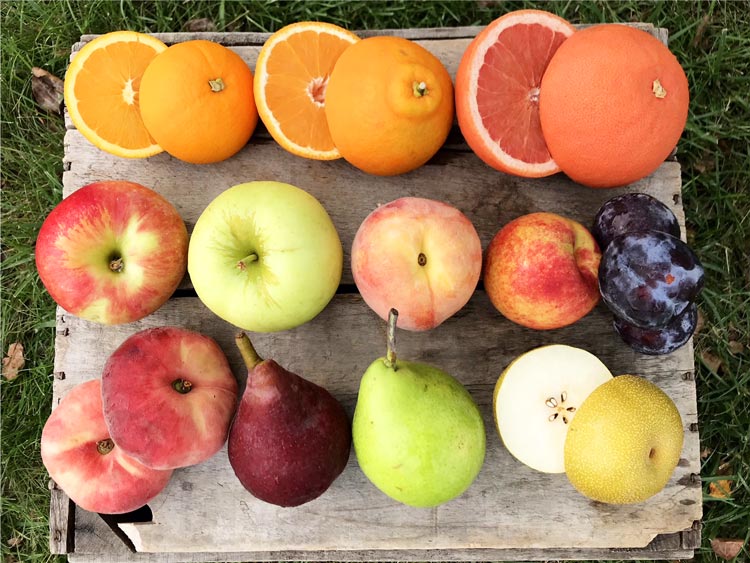
However, the same review also noted that studies showed “significant positive outcomes” when people upped the amount of organic food in their diets. People in those studies who ate more organic food were less likely to experience issues like infertility, birth defects, ear infections, the development of new allergies, preeclampsia, non-Hodgkin’s lymphoma, and more.
While the nutrition data is foggy, organic foods do typically have lower levels of heavy metals, synthetic fertilizer residues, and pesticide residues than their conventionally farmed counterparts. Organic certifying agents test crops from a selection of organic farms annually to check their pesticide levels. Typically, if those levels are above 5% of the Environmental Protection Agency’s tolerance for that pesticide, then the product can’t be sold as organic.
Many organic farmers and eaters also believe that organic produce tastes better.
“I just think the trees produce a more balanced piece of fruit. It’s more natural,” third-generation farmer Byron Albano of Cuyama Orchards, an organic apple farm, told The FruitGuys.
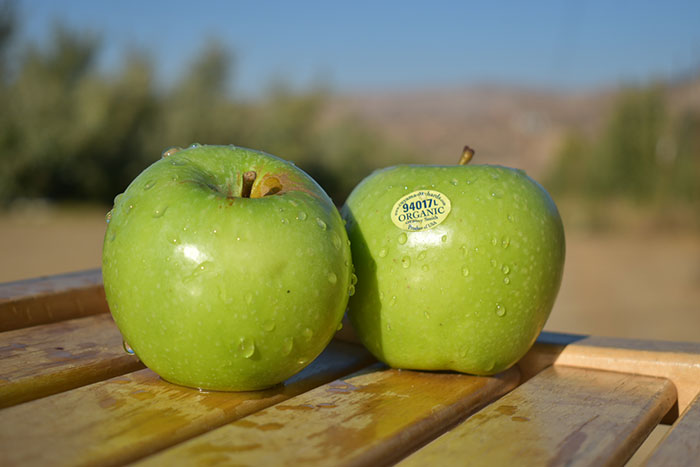
Want farm-fresh fruit?
We've got you covered.
What Requirements Do Farmers Have to Meet?
Before a farmer can call their produce organic, they have to invite a USDA NOP-authorized certifying agent to put their operation under a microscope. It’s a time-consuming and expensive process involving a lot of fees, records, and long hours spent on a computer.
Farms transitioning from conventional to organic also have to avoid prohibited methods or substances for at least three years before they can use the organic label. This “transition period” can be tough, because the farmer has to pay for higher-priced organic inputs like fertilizer without the higher income organic-certified produce could bring.
How Much Does Organic Certification Cost the Farmer?
According to the USDA, “Certification costs may range from a few hundred to several thousand dollars.” That initial cost includes an application fee, but farmers also have to pay annual renewal fees, assessment fees on annual production or sales, and inspection fees.
The USDA doesn’t list the exact costs of certification because they vary by farm size and type, but The National Organic Coalition estimates that maintaining organic certification costs more than $2,800 per year. For farmers like Byron, the price is much higher.
“We were small when we first entered [the National Organic Program in 1999]. I think it was $2,500 a year maybe. It’s about $12,500 at this point. That’s the annual cost for organic,” he told The FruitGuys.
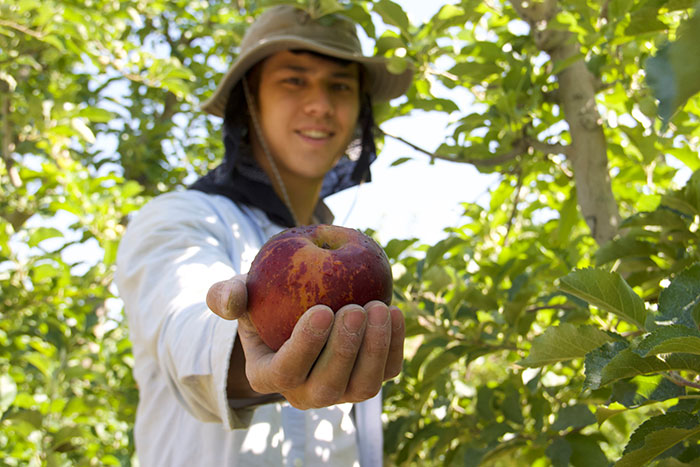
The USDA offers two programs to help farmers transition to organic certification: the Organic Certification Cost Share Program (OCCSP) and the Transition to Organic Partnership Program (TOPP). These programs help, but they don’t entirely relieve the financial challenge of certification for farmers who struggle to turn a profit.
According to the USDA, the median household income from farming was -$849 in 2022. Many farmers rely on off-farm jobs, which bring in a median income of $81,108 per household.
What Motivates Farmers to Go Organic?
Every organic farmer has unique motives for pursuing certification. For Byron’s family, it was largely a business decision.
“I think the rationale was that we believed that we could grow better fruit organically, and a definite part of that was being able to get that fruit into better locations in terms of connecting with the end consumer—those locations being especially co-ops and markets that would specialize in and carry organic produce,” Byron said.
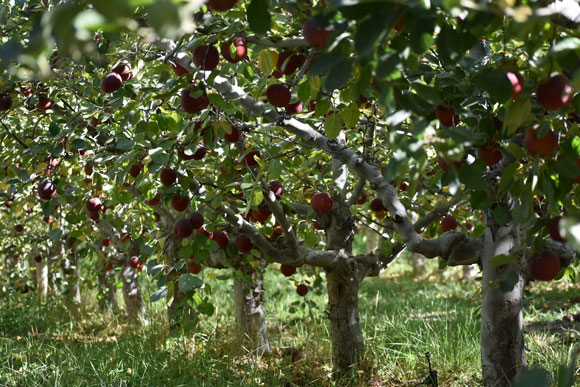
In other words, going organic helped Cuyama Orchards’ fruit reach its customers, who were shopping at organic markets.
Some farmers may also be financially motivated to go organic. According to the USDA, organic farmers can typically get higher prices for their produce. (However, growing that produce is often more costly, so the decision is a trade-off.)
Other farmers, like Javier of JSM Organics, go organic to express their love of the land and steward it for the future. Javier purchased his 200-acre farm in partnership with the Elkhorn Slough Foundation, and 120 acres of it are part of a conservation easement.
Why Do Some Farmers Choose Not to Become Certified?
Many farmers who use organic practices are not certified organic by the USDA. There are dozens of reasons why a farmer might choose that path, but the nonprofit initiative Modern Farmer lists five big ones:
- The cost of certification
- The time it takes to transition from conventional to organic (at least three years)
- The vagueness of some NOP rules
- The time-consuming paperwork
- The challenges of meeting the USDA’s pesticide thresholds when your neighbors farm conventionally
The FruitGuys spoke to Bernard Ranch Co-owner Vince Bernard, a California citrus farmer, to find out why his farm isn’t currently certified organic. Until the State of California required him to spray for oriental fruit flies in 2023, Vince had “never sprayed a pesticide in his life.” He also uses organic practices like fertilizing his trees with seaweed and leveraging beneficial insects to control pests.
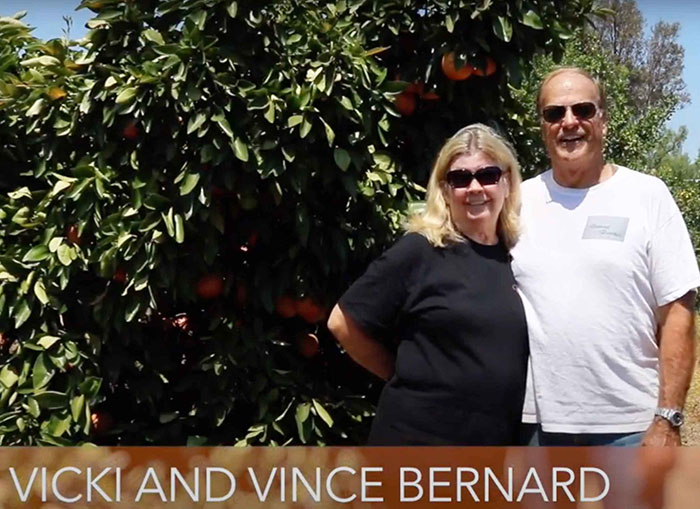
Bernard Ranch was certified organic in the 1980s, before NOP went into effect in 2002. Vince told The FruitGuys that the main reason he didn’t renew his certification after the first year—and chose not to become certified through NOP—is that he sells most of his produce at farmers’ markets. There, the stories he tells customers about his growing practices are just as valuable as an organic label.
“For me, it’s more important to talk to the customers face to face,” he said. “As I’ve grown, I get more people like The FruitGuys and stores that might want a certificate because they need it for a third party—if they buy it and want to put up an organic sign, they have to have the certificate. I’ve debated whether I want to do that, and so far, I’ve just resisted.”
Vince also worries that the paperwork involved in organic certification would come with a significant labor cost. By skipping organic certification, Vince can continue making decisions that he—not the USDA—feels are best for his farm.
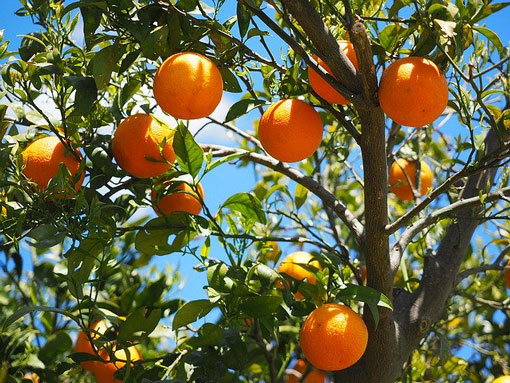
Do Farmers Have Concerns About Organic Certification?
Some farmers who use organic practices feel that NOP’s regulations aren’t strict enough or focus on the wrong aspects of farming. They may think that the organic criteria don’t focus enough on soil health, for example, because it allows practices like tilling and growing food hydroponically.
Other farmers point to loopholes in the existing regulations. For example, large organic chicken and cattle ranchers have historically used practices many consumers would not consider organic, like raising their animals without access to pasture, without losing certification. Organic fraud is also an issue, especially when it comes to imported grains and soybeans.
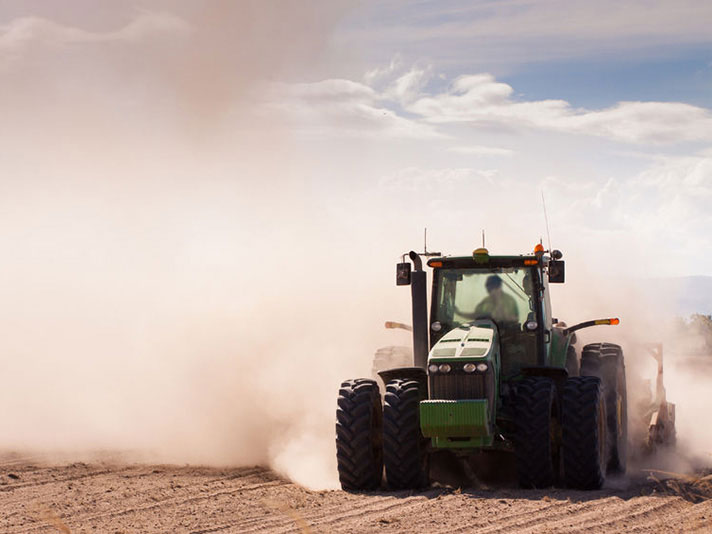
Efforts to address these issues have been in political gridlock for years. But in 2023, the USDA published the Strengthening Organic Enforcement Final Rule to tighten regulations and prevent fraud.
Are Farmers Moving Beyond Organic Certification?
Some farmers are moving beyond USDA Organic Certification, choosing options like the Regenerative Organic Certification, Real Organic Project Certification, or Naturally Grown Certification. Some of these certifications are designed to stand alone, while others are add-ons to USDA Organic Certification. Farmers use them to underscore their commitment to farming in an eco-friendly and ethical way.
Both the Regenerative Organic Certification and Real Organic Project Certification put a heavier emphasis on soil health than NOP. For example, The Real Organic Project only certifies soil-based operations, taking a stand on the controversial issue of hydroponics.
Meanwhile, The Regenerative Organic Certification includes requirements for “farmer and worker fairness” that aren’t covered in NOP. The Naturally Grown Certification uses a unique peer-review process, where farmers inspect each other’s fields instead of relying on third-party certifiers.
Apricot Lane Farms in Moorpark, California, holds organic, biodynamic, and Real Organic Project certifications. The farm also encompasses Certified Wildlife Habitat and a Humane Certified livestock program. Farmers Molly and John Chester have used a range of farming practices to rebuild their farm’s soil and keep it healthy.
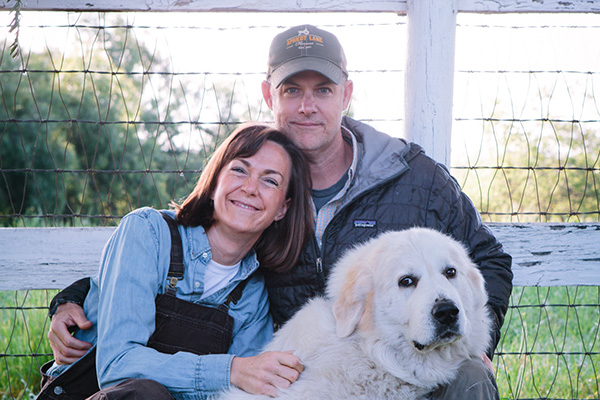
“We are on a farm that had been farmed conventionally using industrial chemicals for decades prior to us being here,” Apricot Lane Director of Sales and Chef in the Field Nathan Macaulay told The FruitGuys. “When John and Molly started the farm, the soil itself was dead. The soil would come up in big clumps and when you threw it down it didn’t break apart at all. They had to bring everything back to life.”
In addition to following the organic and biodynamic rules, Apricot Lane’s “fertility department” uses regenerative farming practices like making compost, vermicompost, and compost tea (liquid fertilizer extracted from compost) on site.
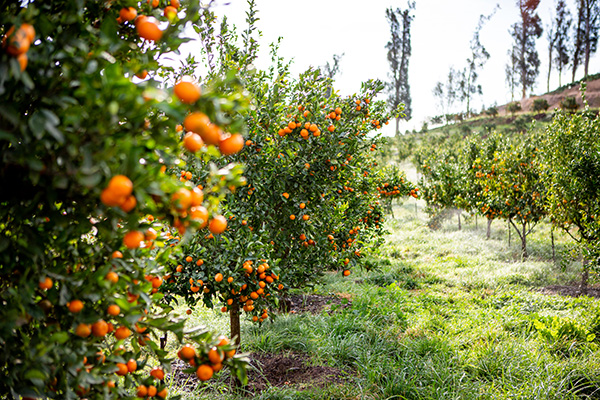
“Really at the end of the day for us, we are focused on regenerative farming and take on a multitude of various practices, we’re not just focused on a single style,” Nathan said.
Final Takeaways
Ultimately, the question, “What does ‘organic’ mean?” does have an answer. Organic farmers follow strict USDA rules. They can’t use GMOs, and their food typically has lower levels of pesticide residue than conventional options. You can feel good about those things when you add an organic apple to your shopping cart.
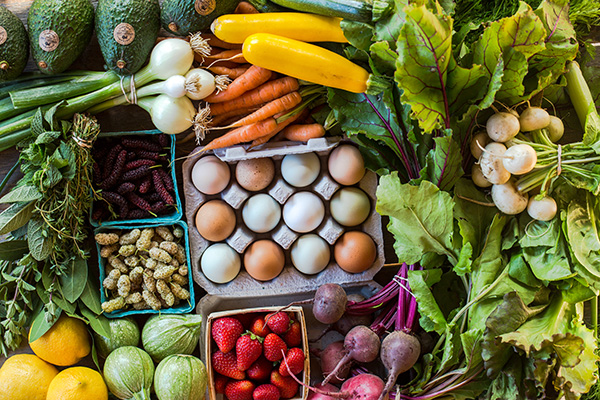
That said, non-organic fruits and vegetables can also be healthy and delicious. Some farmers, like Vince Bernard, use eco-friendly farming practices but aren’t certified organic. To find out the real story behind your apple or pear—including how it’s grown, what it’s sprayed with, and more—the best thing you can do is learn more about the farmer who grew it.
If you’re a FruitGuys customer, you can start right now! To meet some of The FruitGuys’ farm partners and learn about their farming practices, check out the Profiles section of our blog. Our Farmer of the Month posts will help you get to know the folks behind your food.
Want farm-fresh fruit?
We've got you covered.
Recent Articles
Remembering Frieda Caplan, Queen of the Kiwi
Donate-a-Crate Makes Corporate Giving Easy and Tasty
8 Avocado Varieties To Try (And When to Taste Them!)
When to Send Snack Care Packages to Employees: An HR Guide
The FruitGuys Delivers Fresh Groceries to 200 Federal Workers
Subscribe to our Newsletter
"*" indicates required fields



